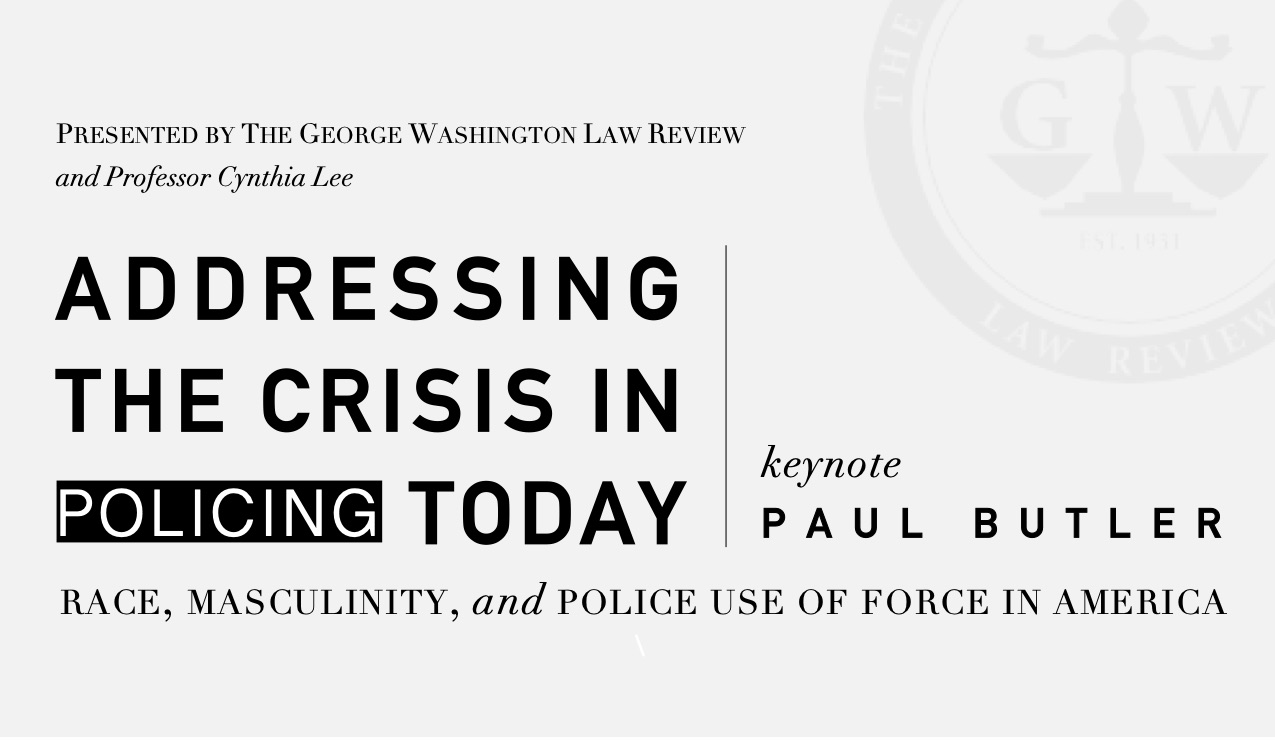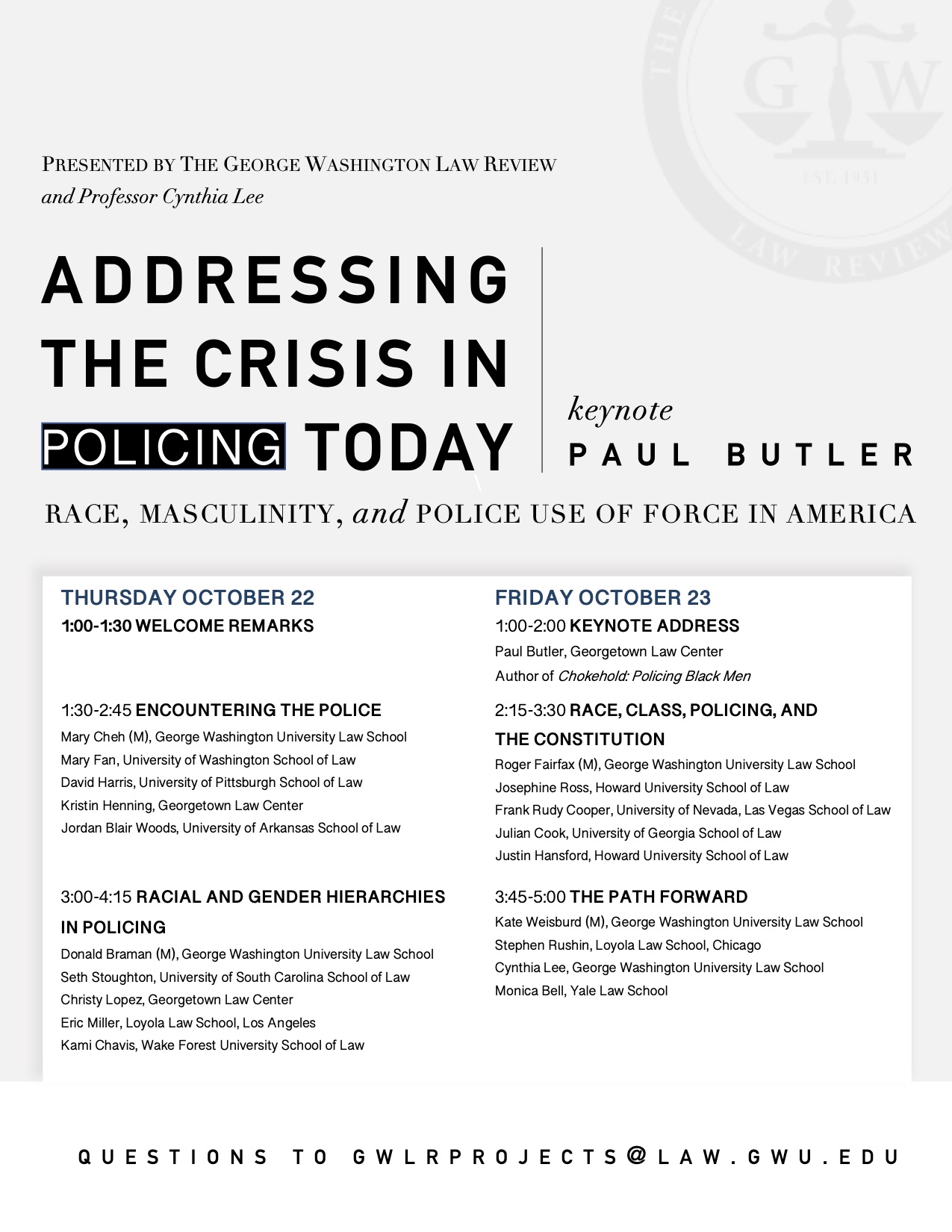Symposium 2020

The George Washington Law Review was proud to host this year’s symposium on Addressing the Crisis in Policing Today: Race, Masculinity and Police Use of Force in America. Over the course of two afternoons, we virtually featured legal scholars from across the nation who have thought and written about policing to discuss the crisis in policing today.
Approximately one thousand people die at the hands of police each year yet very few police are prosecuted and even fewer are convicted. While in the vast majority of cases, the deceased individual had a weapon, the sheer number of these incidents has led many to feel police are not being held accountable. The movement for Black lives has repeatedly called for a change in way we think about public safety. Police, in contrast, feel they are under attack and unfairly second-guessed for split-second life or death decisions.
As more and more people demand that police officers be held accountable whenever an officer shoots and kills a civilian, an increasing number of prosecutors are bringing criminal charges against officers responsible for civilian deaths. Some fear that the increased public scrutiny of police officer actions and use of the criminal justice system to hold officers accountable has led many officers to refrain from acting to protect the public welfare when they should intervene, leading to a spike in crime. Others fear such scrutiny has resulted in many officers deciding to resign or retire and fewer individuals willing to serve as police officers. Still others, led by the movement for Black lives, feel legal reform is insufficient to bring about transformative change and that the only path forward involves defunding the police and ultimately abolishing police altogether.
Is there a way to bridge the chasm between those who think police officers are indiscriminately targeting Black and Brown individuals without justification and the officers who insist they are simply trying to protect and serve? Can the community and police trust each other enough to work together on solutions going forward? This year’s symposium featured discussions addressing these and other questions.
Panel Reviews
Thursday, October 22
Panel I: Encountering the Police
- Professor Mary Cheh (moderator), George Washington University Law School
- Professor Mary Fan, University of Washington
- David Harris, University of Pittsburgh School of Law
- Kristin Henning, Georgetown University Law Center
- Jordan Blair Woods, University of Arkansas School of Law
Panel II: Racial and Gender Hierarchies in Policing
- Donald Braman (moderator), George Washington University Law School
- Seth Stoughton, University of South Carolina School of Law
- Christy Lopez, Georgetown University Law Center
- Eric Miller, Loyola Law School, Los Angeles
- Kami Chavis, Wake Forest University School of Law
Friday, October 23
Keynote Address: Paul Butler
Georgetown University Law Center; Author, Chokehold: Policing Black Men
Panel III: Race, Class, Policing and the Constitution
- Roger A. Fairfax, Jr. (moderator), George Washington University Law School
- Josephine Ross, Howard University School of Law
- Frank Rudy Cooper, University of Nevada, Las Vegas School of Law
- Julian Cook, University of Georgia School of Law
- Justin Hansford, Howard University School of Law
- Kate Weisburd (moderator), George Washington University Law School
- Stephen Rushin, Loyola Law School, Chicago
- Cynthia Lee, George Washington University Law School
- Monica Bell, Yale Law School

